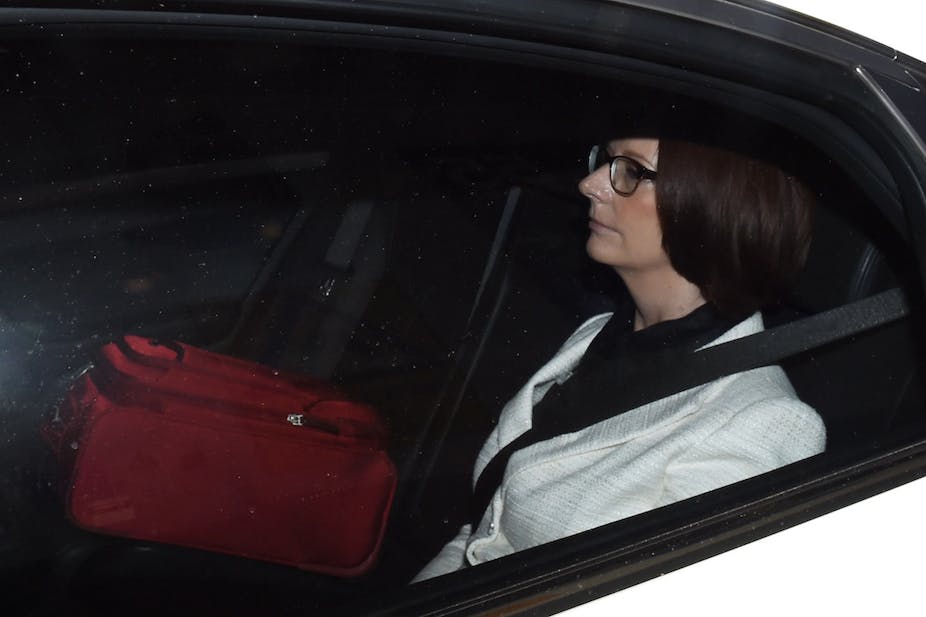The Royal Commission into Trade Union Governance and Corruption has recommended charges be considered against the two former Australian Workers Union (AWU) officials whom Julia Gillard assisted to set up a slush fund.
But Commissioner Dyson Heydon did not find wrongdoing by Gillard in her work on the fund, although there was a “lapse of professional judgement” on her part.
Heydon urged Victorian and West Australian authorities consider fraud charges against Gillard’s former partner Bruce Wilson, and Ralph Blewitt, the former officials responsible for the AWU Workplace Reform Association slush fund.
Gillard was a lawyer with Slater and Gordon at the time she advised them.
While the findings on Gillard were benign in relation to the slush fund, Heydon was harsh on her evidence, rebutting the allegation she received money from Wilson for her house renovations.
Gillard denied the claim, but the commission believed the account of her builder Athol James, who gave evidence that “she said Bruce was paying for it”.
The commission said there could be alternative explanations for Gillard’s testimony. The first was that she wanted it to be true that she had paid for all the renovations; the second was that she knew her testimony to be false.
It was very unlikely that Gillard’s testimony proceeded only from “some unconscious transmogrification of the truth proceeding from velleity”, the report says.
“She knew that Athol James’s testimony was inconsistent with the position she had developed over the years up to 2012.” The report adds it would be very hard for Gillard to make any concessions; “a cleaner solution was absolute denial”.
“She must have thought that her status in public life would outweigh the word of an utterly obscure and aged man,” it says.
“Taking together the incorrectness of her evidence, the strength of her motives, and her demeanour in giving evidence, the inference is strong that she consciously chose to adopt the clean course of flat denial.”
In damning findings about sections of the union movement, the commission has recommended charges be considered against officials in the Construction Forestry Mining and Energy Union (CFMEU) and the Health Services Union (HSU).
Two volumes of the commission’s interim report have been released while a third, dealing with threats to witnesses, has been kept confidential because of the serious risks to the safety of people named in it.
The confidential volume “reveals grave threats to the power and authority of the Australian state”, the commission says.
Recommendations include that:
The Commonwealth Director of Public Prosecutions consider criminal charges against various CFMEU officials in relation to intimidation and coercion;
The Australian Securities and Investments Commission consider charges against the Queensland state secretary of the CFMEU for breaches of the Corporations Act;
The Commonwealth DPP consider criminal charges against HSU officials for making false statements; and
The Victorian DPP consider prosecuting for blackmail the Victorian secretary and assistant secretary of the CFMEU.
Employment Minister Eric Abetz said the report demonstrated the “pressing need” for legislation to re-establish the Australian Building and Construction Commission to “counter thuggery and lawlessness in the construction industry”. It also showed that a “Registered Organisations Commission” was required. Legislation for these bodies is before the Senate.
The report criticises slush funds, saying they operate largely in secret; have poor or non existent record keeping; their contributions may not be voluntary; they disproportionately advantage incumbents, and their candidates commonly plead ignorance about funding sources, spending and debt.
Australian Council of Trade Unions president Ged Kearney said the Abbott government owed Gillard “an apology – the smoking gun wasn’t there”.

